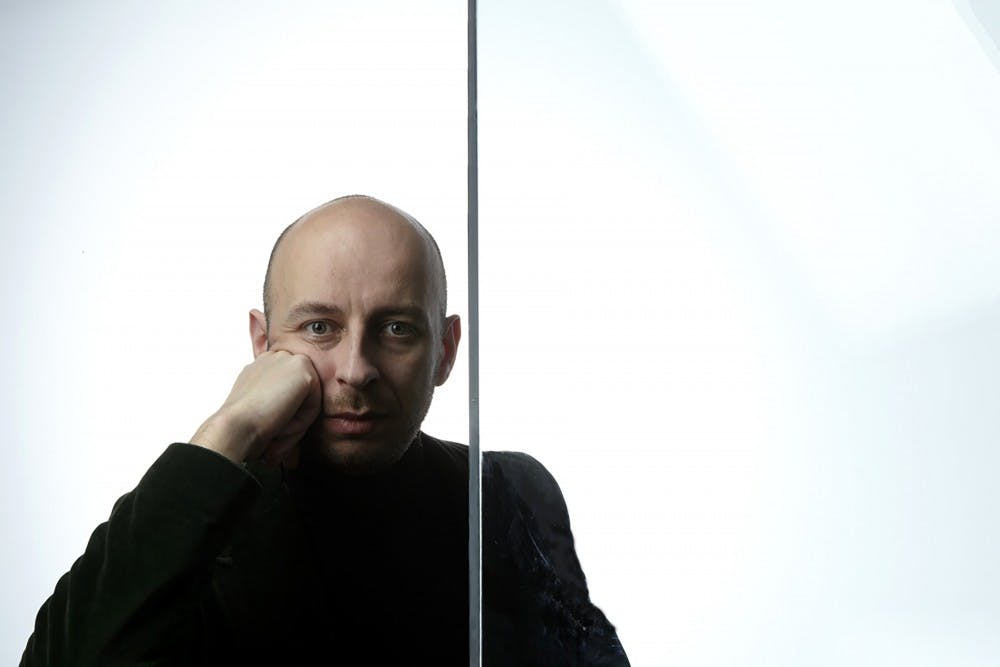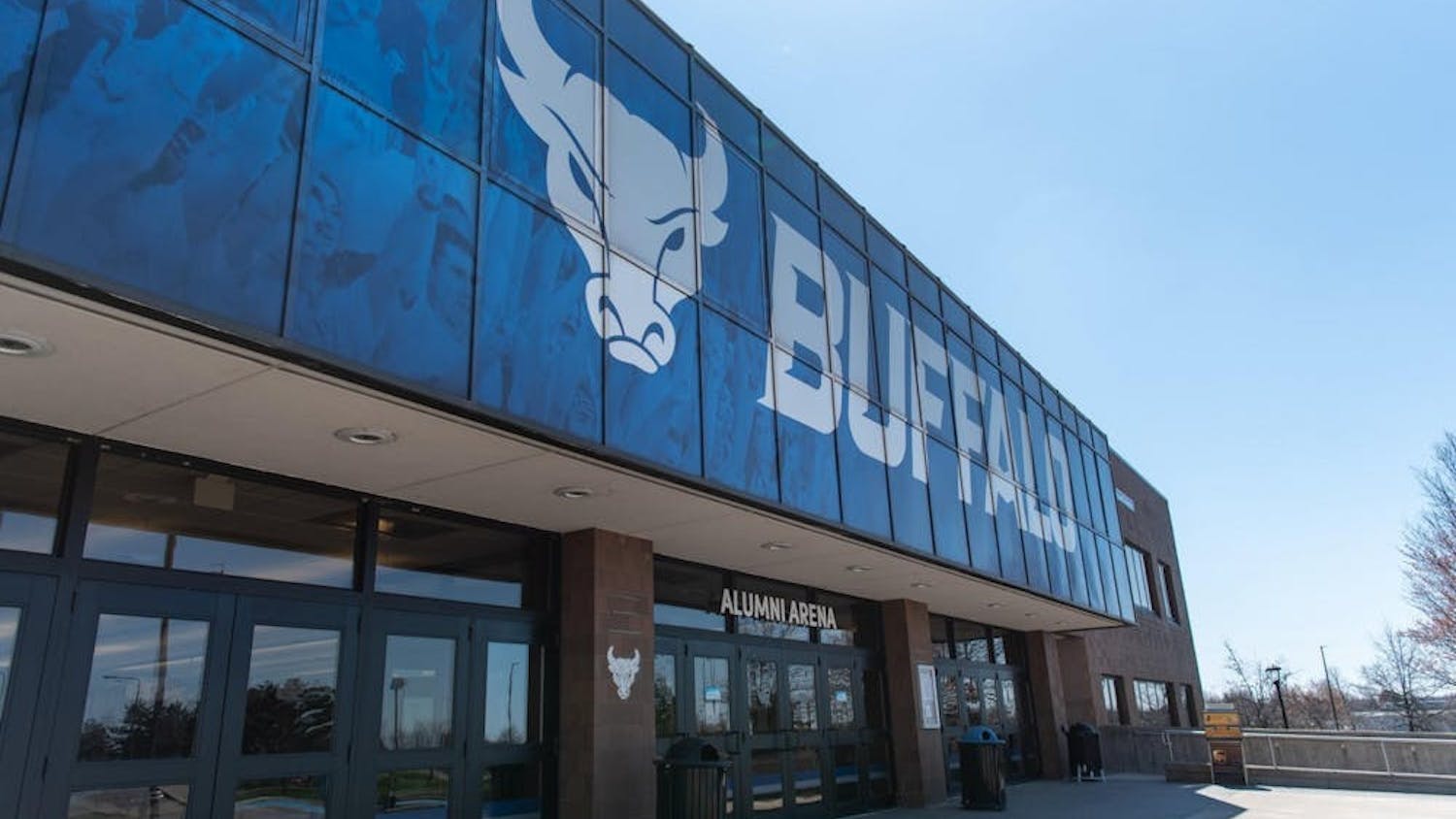Olivier Pasquet has visited Buffalo enough times to be considered a regular.
Pasquet is a world-renowned music producer, sound and visual artist. Pasquet recently arrived in Buffalo as a visiting artist part of UB’s Creative Arts Initiative. He’s making his return to the Queen City to work on a project for June in Buffalo, a festival that honors contemporary music and artists.
Pasquet talked to The Spectrum about his previous work, preparation for his current project and his personal inspirations in the arts.
Q: Can you describe your role and the preparation for the June in Buffalo festival?
A: I was invited here by David Felder [of the music department] to do video and audio pieces for the June in Buffalo festival. June in Buffalo is a famous festival in the world of contemporary music. This art form has always been a big part of my life. My work focuses on purely electronic pieces – including light and sound installations, a fabricated structure – something like putting two mirrors in front of each other with a laser in between. During this trip, I am expected to be in Buffalo altogether almost two months. I have been in Buffalo many times for the UB music department.
Q: What ultimately inspires you and your creations?
A: The world around me; the social aspect of it and the scientific, as well. I am always willing to put forth a lot of research toward music and science. As far as science, I am mostly interested in physics – astrophysics specifically – stories about the big bang, particles, gravity. The explanations for why we are here interest me. The relation between science and art is very interesting. It is different than the relation between technology and art. Science is more about perception.
What sparks my interest in physics is that it explains the universe we are living in. I consider my art as my personal universe. Reality is described by physics, whereas my personal fate is an artificial reality for myself. The two combined give relation between my personal reality and actual reality from science.
Q: What is your favorite moment during your creative process?
A: The bow after the concert. I love placing pieces over and over again. The premiere is stressful. Pieces naturally get better over time – it's like when you open awine bottle, you shouldn’t drink it right away, because as it ages it gets better. The more experience you get, the better your performances get.
I don't work. I am always on holiday. Whenever I go somewhere, it is for personal reasons. If I work on a piece, it’s a personal thing. It sounds selfish, but not really, because I want to share my work. I am very lucky. I have the freedom, the time and space to do what I love and make a living from it. I want people to discover another universe; be inspired by my work to see an imaginative universe.
Q: Do you have a favorite instrument?
A: The computer, of course. I come from the world of electronic music, so the computer is very interesting. It’s a continuity of your mind. It's an interactive instrument. Time on the computer is only when you press it. When people write music, they like to be as precise as possible. Sometimes I like randomness and accidents. It gives a sense ofnaturality. When you leave out the randomness and never leave room for surprise, things can get boring.
Q: What do you hope to ultimately achieve? Are there any goals for the future?
A: I'm quite happy with my current situation. Although, I do have a wish: a need of physicality.
The problem with digital art is you spend a lot of time on the computer and you lose the social aspect. My next steps will include more involvement with society. Maybe even something political, actually. I have spent a decade doing digital art. I don’t know what I would want to do politically yet, but I know that I would want it to be subtle – not a left-wing manifesto about something. Something involving visual arts, abstract that you don’t understand right away. Something related with society.
People want a reason to listen and gravitate to something. I like the idea of including both a message and art. I'm not the only one. I see it in electronic music more and more. We are all together in this world, people gathering together, not always for the same cause but we may gather for the same performance. Art brings people together.
Ema Makas is a staff writer and can be reached at arts@ubspectrum.com.





